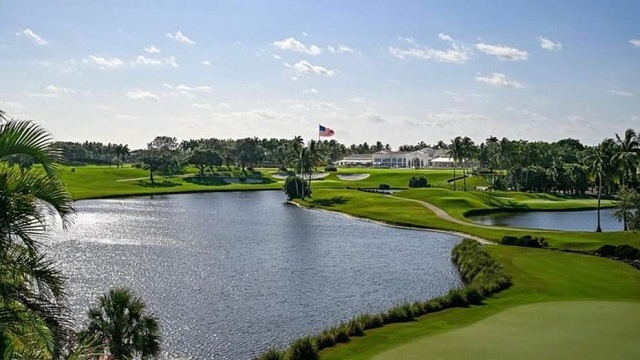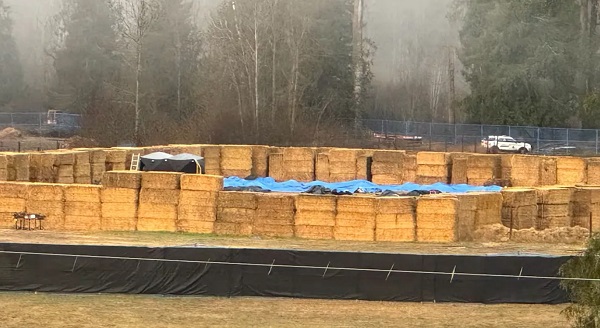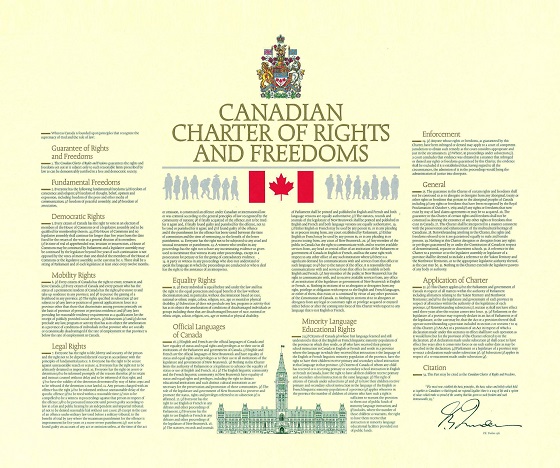International
FBI: Trump was playing golf when shots rang out. 2nd assassination attempt on Donald Trump’s life thwarted

From The Center Square
By
Trump was playing golf at his club when shots rang out
U.S. Secret Service agents shot at and later arrested a man with an AK-47 rifle near Donald Trump’s West Palm Beach, Fla., golf club Sunday afternoon while Trump was on the course. The FBI said it is investigating the incident as an attempted assassination of the former president, the second in two months.
Palm Beach County Sheriff Ric Bradshaw said at a news conference that the Secret Service alerted local authorities that shots were fired about 1:30 p.m. Sunday. A Secret Service agent who was monitoring the course a hole ahead of Trump noticed a man with a rifle pointing the barrel through a chain-link fence near shrubbery that surrounds the course, Bradshaw said. The agent fired on the alleged gunman, who was approximately 300 to 500 yards away from the former president. Trump, the Republican nominee for president, was rushed back to the clubhouse in a golf cart and was unharmed.
A witness told authorities he saw the gunman running from the scene to a car, and was able to get the car’s license plate, Bradshaw said. Agents were able to track the vehicle and arrested the suspect, Bradshaw said. He remains in custody. No other details were released about the suspect.
“Fortunately, we were able to locate a witness that came to us and said, ‘Hey, I saw the guy running out of the bushes. He jumped into a black Nissan, and I took a picture of the vehicle and the tank,’ which was great,” the sheriff said. “So we had that information, … put it out to the license plate readers, and we were able to get a hit on that vehicle on I-95 as it was headed into Martin County. We got a hold of Martin County Sheriff’s Office, alerted them, and they spotted the vehicle and pulled it over and detained the guy.”
Authorities found the rifle, a scope, two backpacks and a GoPro camera in the bushes where the gunman was hiding.
“The FBI has assumed the role as the lead federal law enforcement agency in the investigation of the incident that occurred earlier today at Trump International Golf course here in West Palm Beach, Florida,” Jeffrey Veltri, special agent in charge of the FBI Miami field office, said at the news conference. “We’ve deployed a number of resources, including investigative teams, crisis response team members, bomb technicians and evidence response team members as well.”
Trump told Fox News that he was on the 5th hole when he heard gunshots.
“Tell everybody I am fine and the Secret Service did a great job,” Trump told Fox News.

Trump International Golf Club, West Palm Beach, Fla.
The West Palm Beach golf club is less than five miles from Trump’s Mar-a-Lago home.
Bradshaw said that if Trump were a sitting president, there would have been more security around the perimeter of the golf course
Sunday’s incident occurred two months after Trump was the target of an assassination attempt at a campaign rally in Butler, Pa. Trump was grazed by a bullet in his ear in the Pennsylvania shooting just two days before the start of the Republican National Convention. The suspect in the earlier assassination attempt was shot and killed at the scene.
The Secret Service was widely criticized for its lax security efforts after the Pennsylvania attempt. Kimberly Cheatle, the director of the U.S. Secret Service, resigned under heavy pressure.
This is a developing story.
COVID-19
Spy Agencies Cozied Up To Wuhan Virologist Before Lying About Pandemic


From the Daily Caller News Foundation
By Emily Kopp
The Office of the Director of National Intelligence’s (ODNI) hub for foreign biological threats dismissed the intelligence pointing to a lab accident in Wuhan as “misinformation” in January 2021, two former government sources who requested anonymity to discuss sensitive internal meetings told the Daily Caller News Foundation. New documents show that intelligence risked implicating ODNI’s own bioengineering advisor — University of North Carolina professor Ralph Baric.
Baric, who engineered novel coronaviruses with the Wuhan Institute of Virology (WIV), advised ODNI four times a year on biological threats, according to documents released Oct. 30 by Kentucky Sen. Rand Paul.
Dear Readers:
As a nonprofit, we are dependent on the generosity of our readers. \
Please consider making a small donation of any amount here.
Thank you!
Baric did not respond to the DCNF’s requests for comment.
The professor’s ties to American intelligence may run even deeper, the documents reveal, as ODNI facilitated a meeting between the CIA and Baric about a project on coronaviruses in September 2015.
The email exchange with the subject line “Request for Your Expertise” shows an unnamed government official with a CIA-affiliated email address pitching a “possible project” to Baric relating to “[c]oronavirus evolution and possible natural human adaptation.”
The new documents shed a bit of light on a question members of Congress have posed for years: Whether our own intelligence agencies knew more about the likelihood of a lab origin of COVID than they told the public.
“Director Ratcliffe has been on the forefront of this issue since the start of the COVID-19 pandemic and has been committed to transparency and accountability on this issue,” a CIA spokesperson said in a statement. “In January – as one of the Director’s first actions at Langley – CIA made public its assessment that a research-related origin of the COVID-19 pandemic is more likely than a natural origin. CIA will continue to evaluate any available credible new intelligence reporting as appropriate.”
Paul is seeking more documents from ODNI on potential ties between U.S. intelligence and the research in Wuhan as part of an ongoing investigation by the Senate Committee on Homeland Security and Governmental Affairs and has promised public hearings in the coming months.
Director of National Intelligence (DNI) Tulsi Gabbard disbanded the ODNI biological threats office earlier this year following questions from the DCNF about its suppression of COVID origins intelligence in August. Gabbard and a dedicated working group have also been quietly investigating the origins of COVID.
Protecting Their Own

Baric gave a presentation to the ODNI in January 2020 showing that he advised American intelligence that COVID may have emerged from a lab, the documents also indicate. Baric shared that the WIV had sequenced thousands of SARS-like coronaviruses, including strains capable of epidemics, the slides show.

Baric noted that the Wuhan lab does this work under low biosafety levels despite the ability of some of these viruses to infect and grow in human lung cells.
What Baric omitted: He had submitted a grant application in 2018 with intentions to conduct research to make coronaviruses with the same rare features seen in COVID while concealing the Wuhan lab’s low biosafety level, jotting in the margins of a draft of the grant application that Americans would “freak out” if they knew about the shoddy standards.
One year after Baric’s presentation, ODNI had hardened against the lab leak hypothesis.
When State Department officials pushed to declassify certain intelligence related to a plausible lab leak in January 2021, the ODNI expressed concerns that it would “call out actions that we ourselves are doing.”
Former ODNI National Counterproliferation and Biosecurity Center (NCBC) Director Kathryn Brinsfield, a medical doctor, also dismissed a January 2021 presentation by government officials about a plausible lab origin of COVID as “misinformation,” two sources told the DCNF. Her top aide Zach Bernstein, who possesses a master’s degree in security studies but no scientific credentials, also dismissed the presentation, according to three sources.
Gabbard disbanded NCBC in August following questions from the DCNF about its role in suppressing COVID origins intelligence.
But in the years preceding Gabbard’s takeover of the intelligence community’s central office, the ODNI’s public reports omitted any analysis of COVID’s viral genome. One intelligence agency filed a formal complaint about this glaring omission, the DCNF reported.
Scientists often received fierce pushback from former National Intelligence Council official Adrienne Keen, who helped steward former President Joe Biden’s 90-day review into COVID’s origins, an official told the DCNF. Paul’s request for records from ODNI includes a request for some of Keen’s communications.
Brinsfield and Keen did not respond to requests for comment.
Unanswered Questions
Despite the new disclosures, the precise nature of the CIA’s interest in Baric’s coronavirus work remains unknown. The documents do not include any further details about the work that the CIA and Baric may or may not have undertaken.
The U.S. Agency for International Development (USAID) funded the discovery of novel coronaviruses and shipped the samples to Wuhan through a 2009-2020 program called PREDICT, the DCNF reported in July. USAID sometimes acted as a CIA front before Trump dismantled it earlier this year — but no evidence exists that the CIA directed PREDICT.
An unnamed FBI special agent was in communication with Baric about responding to public requests for his research and emails with the Wuhan lab through the North Carolina Freedom of Information Act, according to a 2024 congressional letter, but details about the contact between the FBI and Baric also remain uncertain.
The CIA was slow to acknowledge that a lab was the pandemic’s most likely source, an assessment that the CIA made public more than five years after the pandemic emerged and well after the FBI and the Department of Energy.
In early 2020, when Trump’s Deputy National Security Advisor Matt Pottinger tasked CIA analysts to dig into the matter, they came up empty, according to a New York Times report. Instead, anonymous sources smeared Pottinger as having a “conspiratorial view” of the Chinese Communist Party.
Trump’s current CIA Director John Ratcliffe, who served as the DNI from May 2020 to January 2021, revealed in a 2023 Wall Street Journal op-ed that he had pushed for the declassification of COVID origins intelligence as the DNI but that he “faced constant opposition, particularly from Langley.”
Daily Caller
Laura Ingraham Presses Trump On Allowing Flood Of Chinese Students Into US


From the Daily Caller News Foundation
Fox News’ Laura Ingraham did not let President Donald Trump off the hook on Monday as she pressed him on allowing a flood of Chinese students to study in the U.S.
Trump confirmed in August that the administration will allow 600,000 Chinese students to attend U.S. colleges and universities to continue the nation’s “very important relationship” with China. Ingraham, on “The Ingraham Angle,” continued to ask the president how allowing this many Chinese students to be admitted into U.S. schools is a “pro-MAGA position.”
“Why, sir, is that a pro-MAGA position when so many American kids want to go to school and there are places not for them and these universities are getting rich off Chinese money?”
Dear Readers:
As a nonprofit, we are dependent on the generosity of our readers.
Please consider making a small donation of any amount here.
Thank you!
“[I] never said about China, but we do have a lot of people coming in from China. We always have China and other countries. We also have a massive system of colleges and universities. And if we were to cut that in half, which perhaps makes some people happy, you would have half the colleges in the United States go out of business,” Trump said, prompting Ingraham to doubt that the U.S. relies on China to keep universities open.
Ingraham reminded Trump that the Chinese government spies on Americans and steals intellectual property from the U.S. Trump stated that he views his policy as a business transaction in order to have a good relationship with China and to ensure that American universities continue thriving.
“I know you and I disagree. We’re never going to agree on it, but that’s OK. And it’s not that I want them, but I view it as a business. We have millions and millions of people. Also, I want to get along with countries if possible … But one thing, you don’t want to cut half of the people, half of the students from all over the world that are coming into our country, destroy our entire university and college system. I don’t want to do that. I wouldn’t lose any. And don’t forget, MAGA was my idea. MAGA was nobody else’s idea,” Trump said.
The U.S. and China reached an agreement in June to allow Chinese students to attend U.S. colleges and universities, which came after the administration suspended Harvard University’s ability to admit foreign nationals on June 5. The administration cited national security concerns and allegations of antisemitism on college campuses in its efforts to restrict foreign students from entering the U.S.
Trump previously acknowledged the potential national security risk of allowing Chinese students into U.S. colleges and universities, stating in June that “you have to watch” students from the nation governed by the Chinese Communist Party (CCP).
Analysts told the Daily Caller News Foundation that this policy could help the CCP take advantage of higher education in America and pose serious national security risks.
-

 armed forces10 hours ago
armed forces10 hours agoIt’s time for Canada to remember, the heroes of Kapyong
-

 International2 days ago
International2 days agoBBC uses ‘neutrality’ excuse to rebuke newscaster who objected to gender ideology
-

 Agriculture2 days ago
Agriculture2 days agoThe Canadian Food Inspection Agency’s Bloodlust: Worshipping Policies While Ignoring Science
-

 Agriculture2 days ago
Agriculture2 days agoThe Canadian Food Inspection Agency’s Bloodlust for Ostriches: Part 2
-

 Housing2 days ago
Housing2 days agoTrump advancing 50-year mortgage to help more Americans buy homes
-

 International2 days ago
International2 days agoBBC boss quits amid scandal over edited Trump footage
-

 Agriculture2 days ago
Agriculture2 days agoWas The Ostrich “Cull” A Criminal Act?
-

 Frontier Centre for Public Policy2 days ago
Frontier Centre for Public Policy2 days agoNotwithstanding Clause Is Democracy’s Last Line Of Defence







